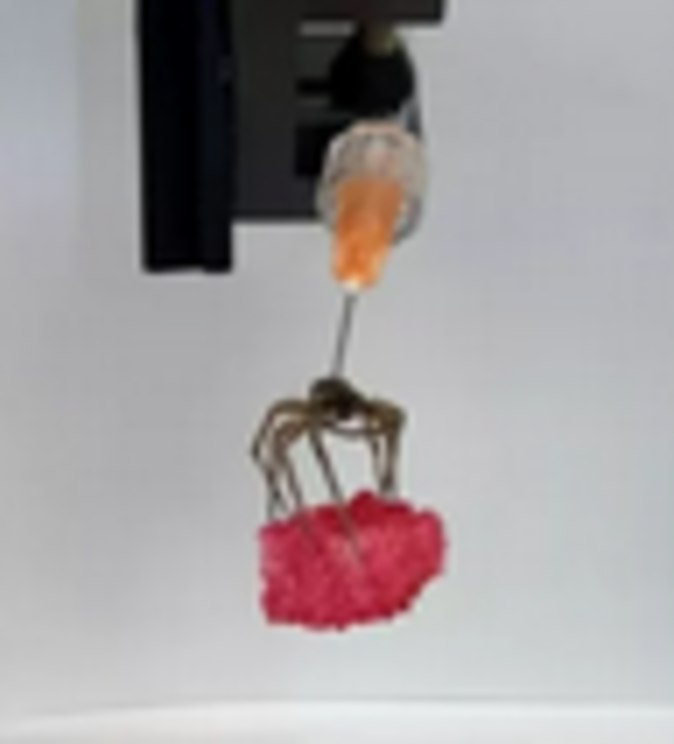Watch: Engineers transform dead spiders into robotic claws
A team of engineers from Rice University devised a way to transform the bodies of dead spiders into robotic claws akin to those seen in the classic arcade game. According to a press release, the macabre feat was accomplished by researchers at the university's Preston Innovation Laboratory and came about in a rather serendipitous fashion. "We were moving stuff around in the lab and we noticed a curled up spider at the edge of the hallway," graduate student Faye Yap recalled, "we were really curious as to why spiders curl up after they die." Upon looking into the phenomenon, they learned that spiders control their joints using hydraulics, which led the team to search for "a way to leverage this mechanism."
The engineers ultimately figured out that they could insert a needle into the part of the dead spider's body which had previously regulated the creature's internal hydraulics when it was alive. From there, they found that they could control the insect's legs by simply delivering a puff of air into the system. Testing the ability of the 'necrobots,' as they dubbed the reanimated spiders, the team was able to move various objects and operate a circuit board. Amazingly, the team also ran one experiment wherein they opened and closed a dead spider's legs a whopping 1,000 times and the bug's body only showed a minor amount of attrition from the exercise.
Mechanical engineering professor Daniel Preston, who heads the lab, indicated that there are a number of possible real world applications for these necrobots, such as "repetitive tasks like sorting or moving objects around at these small scales, and maybe even things like assembly of microelectronics." Additionally, he postulated that the proverbial zombie spiders could be used to "capture smaller insects in nature," since it would be able to fool its fellow bugs by virtue of its appearance. Preston also noted that the necrobots have a distinct advantage over metallic or plastic claws in that they are biodegradable, "so we're not introducing a big waste stream."

